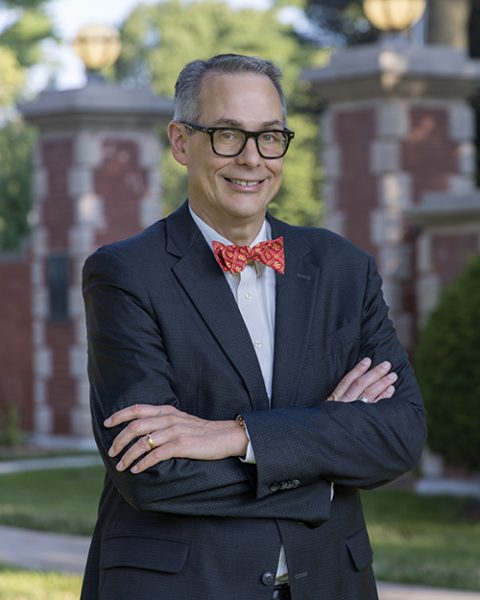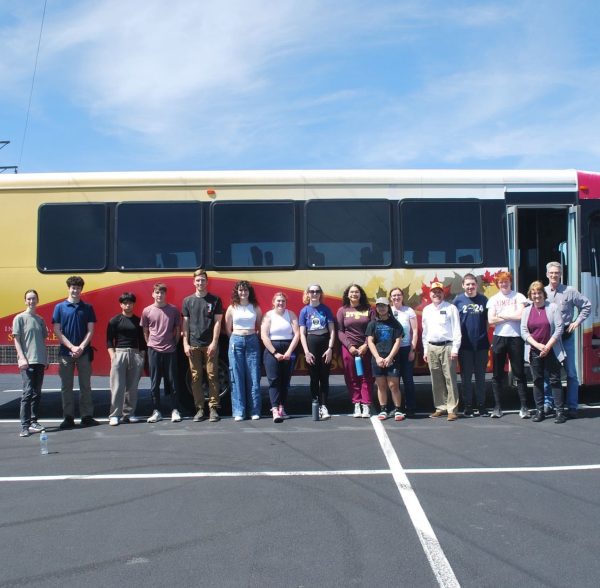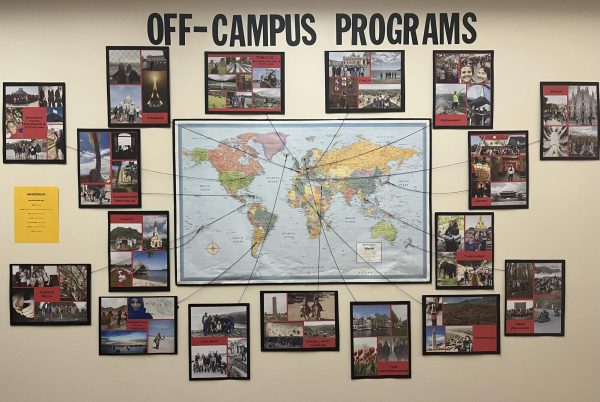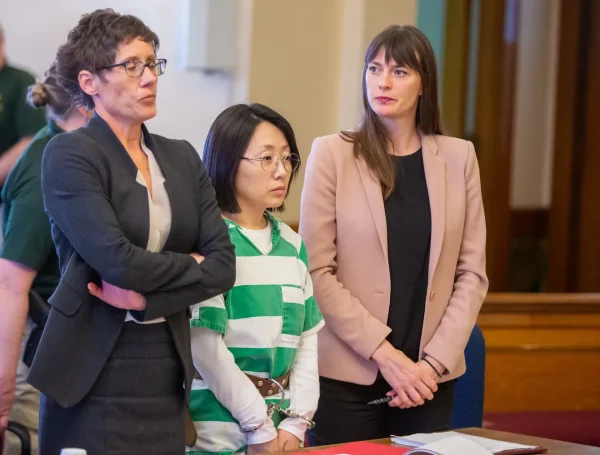Harvard bound — Simpson sends three students to political engagement conference
September 22, 2014
Having the chance to attend a conference at an Ivy League school is something many people never have the opportunity to do. However, three Simpson College students will be traveling to Harvard University in a week.
Tegan Jarchow, Britney Samuelson and Kiley Murray are all sophomores who will be attending Harvard’s Institute of Politics National Campaign for Political and Civic Engagement conference. They will fly out Friday and will be back at Simpson Sunday night.
“It’s a really good opportunity to meet other people our age that get into politics in a different arena because it can be different in different states,” Jarchow said.
Jarchow is from Prairie Village, Kansas and is majoring in political science. She has always been interested in history and thinks that politics is a huge part of history.
“I’ve always really liked history and politics is part of the historical narrative,” Jarchow said, “I paid a lot of attention to current events and started to get a sense of why politics are important.”
This conference gives students from 24 colleges and universities the chance to bring their ideas to each other. Harvard’s Institute of Politics provides professionals in their field to train the students on many different topics.
The goal of the annual conference is to teach students around the country how to address policy issues on their campus and how to bring about changes. In addition to this goal, the overall conference will be focusing on bipartisanship and how to bring people from different political parties together.
In order to be fully prepared for the conference, each school brings in a project they are going to work on for the school year. This project is an issue the students feel needs attention in their area.
Professionals, ranging from communication specialists to federal government officials, are there to help students figure out how to implement their policy projects. Students are taught how to promote their project and build publicity for it.
Simpson’s John C. Culver Fellows will be working on raising awareness of sexual assault and implementing a project to spread the word. Jarchow hopes to raise awareness beyond Simpson and create a viral message.
“We’re going to be doing an awareness campaign on campus, hopefully through video, and try to spread it to other universities,” Jarchow said, “We would like people to make videos about personal experiences, or statistics or whatever they want to talk about that would raise awareness of the issue.”
Seth Andersen, director of the Culver Public Policy Center, thinks this is a great opportunity for the students and is excited to see what the students bring back.
“There are peers from different institutions around the country and it’s a great learning opportunity to find out what works, what doesn’t work and pick up a lot of strategies and ideas from students from colleges and universities all across the country,” Andersen said.
Andersen also said the students tend to keep in touch with each other in order to check on how other projects are going and give their own updates. It is a way for the students to compare progress and if other ideas would work on their own campus.
The students from all of these schools around the country stay in touch through blogposts and through an email distribution list Harvard sets up,” Andersen said, “They stay in touch with each other and with the program at Harvard about the progress they are making on their project.”
Both Andersen and Jarchow think it is important for Simpson students to continue going to the conference. Being able to interact with other schools of varying sizes gives them a perspective on what is happening in the rest of the country.
“Politics is so local that you can get a skewed perspective on what issues mean just to you, but when you hear from other schools, you get to see their perspectives,” Jarchow said.
Attending this conference will give some Simpson students new ideas, new perspectives and new issues to think about. Going forward, these Culver Center Fellows say they will have a strong base for their yearly project.















